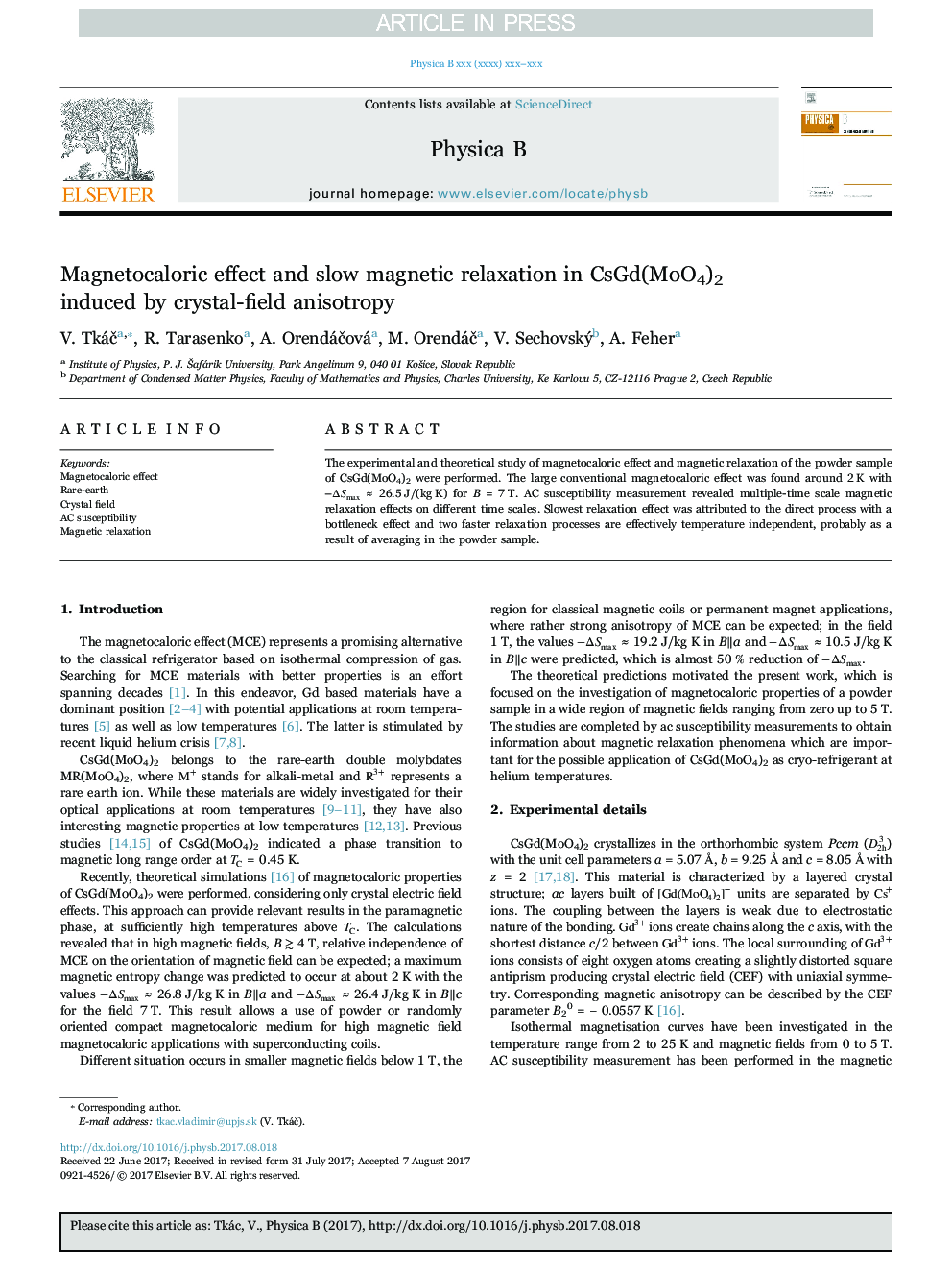| Article ID | Journal | Published Year | Pages | File Type |
|---|---|---|---|---|
| 8161386 | Physica B: Condensed Matter | 2018 | 4 Pages |
Abstract
The experimental and theoretical study of magnetocaloric effect and magnetic relaxation of the powder sample of CsGd(MoO4)2 were performed. The large conventional magnetocaloric effect was found around 2 K with âÎSmax â 26.5 J/(kg K) for B = 7 T. AC susceptibility measurement revealed multiple-time scale magnetic relaxation effects on different time scales. Slowest relaxation effect was attributed to the direct process with a bottleneck effect and two faster relaxation processes are effectively temperature independent, probably as a result of averaging in the powder sample.
Related Topics
Physical Sciences and Engineering
Physics and Astronomy
Condensed Matter Physics
Authors
V. TkáÄ, R. Tarasenko, A. OrendáÄová, M. OrendáÄ, V. Sechovský, A. Feher,
